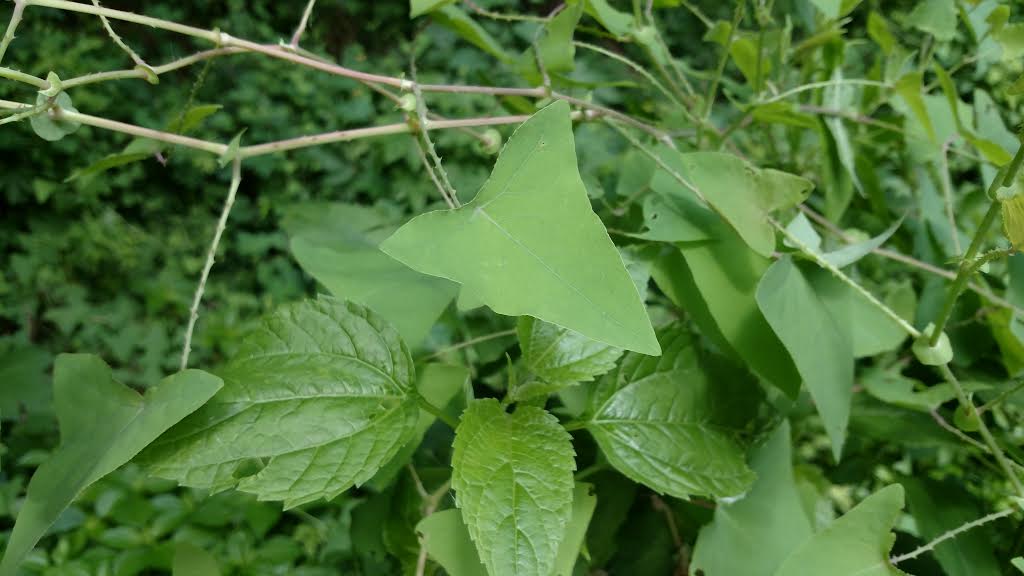While some folks headed down to Seaside Heights or Cape May this past week, or prepared for the annual holiday fireworks display and the traditional backyard barbeque, I on the other hand decided to continue my own summer pastime: doing away with some very nasty invasive plants.
Rather than playing games on the boardwalk or lounging out on the deck I spent a good part of the weekend with the likes of Knotweed, Japanese Hops and Porcelain berry. Why, you may ask? Because unfortunately these plants never take a holiday from destroying our wildlife habitats.
The truth about invasive plants is that they are the things that real nightmares are made of. Habitats dominated by invasive plants are like having a forest full of alien invaders. They may look normal and lush from a distance, but at closer examination the real horror is revealed. Suddenly you find an ecosystem overcome with species that do not belong.
Invasives create habitats void of balance and purpose, and eventually choke out the native life forms that once flourished there. Invasive plants which have no natural checks and balances threaten the very foundation of our wildlife habitats and create an environment void of native plants which now no longer can support the birds, butterflies and other wildlife which have evolved with them for eons. Even deer do not recognize them and they therefore go uneaten.
What exactly is an invasive plant? It is when a naturally aggressive plant either accidently or purposely is introduced to a new habitat where there are no checks and balances. An invasive species colonizes a new area and usually gains an ecological edge since the insects, diseases and foraging animals that naturally keep its growth in check in its native range are not present in its new habitat.
At Bergen County Audubon Society we have been working on restoring native plants to many different areas of our region and the invasive plants never stop coming. Like barbarians at the gate the Mugwort, Japanese Hops and Multiflora-Rose are relentless.
And just when you think they might be under control, here comes the Mile-a-minute vine, the knotweed and the porcelain berry ready to take over. It is not a battle not for the faint of heart . Even when the natives are reintroduced our BCAS volunteers are still needed to keep the invasives at bay to allow the native plants to grow.
Next to a bulldozer running rampant over a State forest or local nature preserve, invasive plants are the biggest threat to our wildlife and our ecosystems. Even the seemingly harmless backyard invasives like barberry and burning bush brought in from your local garden center soon escape and wreak havoc in the surrounding areas.
According to the National Audubon Society, invasive species are now one of the most critical threats to our nation’s declining birds. Invasive species threaten more than one-third of the birds on Audubon’s Watch-List.
Watch-List species are those that face population decline, are threatened by habitat loss on their breeding or wintering grounds, or have limited geographic ranges that heighten their vulnerability to isolated disasters like severe weather or oil spills. Invasive plants by the way can still be purchased at just about all local garden centers and still spread from our suburban backyard gardens.
Our native plants provide the right foods at precisely the right time such as migration or nesting time for our birds, mammals, insects and pollinators. Invasive plants bring that timeless circle of life to a screeching halt.
Whether it is your backyard, schoolyard, or local park, avoid buying and using invasive non-native plants. Reintroduce native plants wherever and whenever you can, and recommend your town and local communities do the same. The future of our wild places will depend on it and I might be able to spend the next holiday sipping plants like barberry.
For more info on the fight against invasive species go to www.njisst.org



